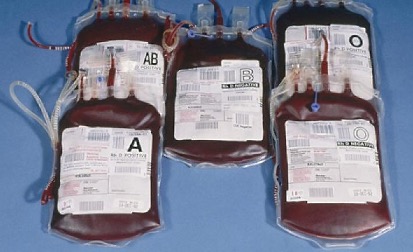Blood Bank NAT-Based Assay Prevents Transfusion-Transmitted Malaria
By LabMedica International staff writers
Posted on 20 Aug 2020
Blood transfusion is an essential component of health care, which saves millions of lives across the world. The screening of blood donors for transfusion-transmissible agents is crucial in reducing risks of transfusion of infected units. Posted on 20 Aug 2020
Malaria can also be transmitted by blood components, and transfusion-transmitted malaria (TTM) cases, although rare, continue to pose a risk to blood services worldwide. TTM is an important public health problem, especially in populations with no immunity to malaria where it can be fatal if not recognized and treated quickly.

Nucleic acid amplification testing-based assay (NAT) improves the surveillance system and prevent transfusion-transmitted malaria in blood banks (Photo courtesy of University of Cambridge).
Immunobiologists at the Oswaldo Cruz Foundation (Rio de Janeiro, Brazil) used a panel of positive and negative samples for the validation of the human immunodeficiency virus type 1 (HIV), hepatitis C virus (HCV), hepatitis B virus (HBV) and malaria nucleic acid amplification test (NAT). The panel consisted of 1,800 negative samples (whole blood and plasma), 16 positive samples (whole blood and plasma) from another laboratory and 31 positive samples from the Malaria Research Laboratory. Malaria diagnosis was performed by microscopy and evaluated by an experienced microscopist.
Two different automated nucleic acid isolation workstations were tested to investigate which technology would provide better results in detecting Plasmodium sp. gene target using plasma samples. The HIV/HCV/HBV/malaria NAT prototype (Bio-Manguinhos, Rio de Janeiro, Brazil) is a real-time nucleic acid amplification multiplex developed to be incorporated into the Brazilian NAT platform to detect HIV, HCV, and HBV. To check the performance and feasibility in a real-life blood bank scenario, the prototype HIV/HCV/HBV/malaria NAT assay was tested on 4,745 blood-donor specimens. DNA was amplified on an Applied Biosystems 7500 Real-Time PCR System (Thermo Fisher Scientific, Waltham, MA, USA).
The scientists reported that the specificity of the prototype NAT assay, 1,800 truly negative samples were tested and no false positive signal was identified in the malaria amplification module. This finding confirms the high specificity of the prototype HIV/HCV/HBV/malaria NAT assay for the malaria target. The analysis of 47 truly positive samples and 1,800 truly negative samples revealed a specificity of 99.8%‒100%, a sensitivity of 92.5%‒100%, and an accuracy of 99.8%‒100%. Of the 4,745 plasma samples tested, three donors showed a positive signal on PCR to the malaria probe (prevalence of 0.06%) and their blood units were discarded.
The authors concluded that The HIV/HCV/HBV/malaria NAT assay is an easy and fast screening method that takes advantage of a platform currently in use as part of the blood bank routine and which has been effective for improving blood transfusion safety. The study was published on July 31, 2020 in the Malaria Journal.
Related Links:
Oswaldo Cruz Foundation
Bio-Manguinhos
Thermo Fisher Scientific














